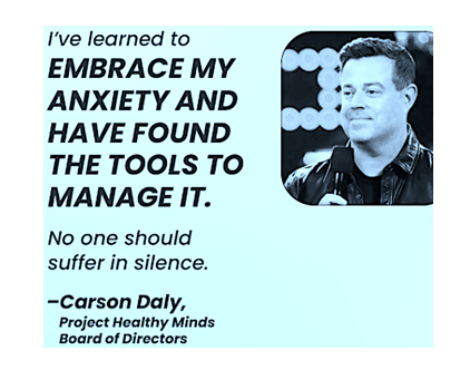Our cell phones are more ubiquitous than ever. Spotting someone without a smartphone in hand at any given time has become a rarity.
While smartphones have had a positive impact on our lives in many ways, it’s also important to recognize the downside of living in an increasingly connected world.
There’s a notable link between excessive smartphone use and mental health challenges. Research reinforces that phones—and their various capabilities—can trigger depression, anxiety, OCD, ADHD, and alcohol use disorder. Not to mention, constant screen exposure can also impact sleep, which, in turn, can trigger or exacerbate anxiety and depression.
Excessive cellphone use is particularly pervasive among children and young adults, who are more prone to the behavioral and cognitive impact of using the devices. Of course, smartphones have many benefits, but it’s important to know when it’s time to put the phone down and live in the moment.
We’ve outlined some fascinating research about the adverse effects of too much screen time, so you’re more aware of your behavior and ensure you strike the right digital balance to maintain optimal mental health.
What the science shows
The science is clear. In the world of mental health, mobile phones are definitely a cause for concern. A number of studies draw the same conclusion: excessive cellphone use—which, for many people, includes constant social media scrolling—has a direct and negative impact on mental health.
Researchers found potential factors that explain this impact, including: cyberbullying, decreased sleep quality, and less physical activity. These three factors, among others, can independently contribute to mental health distress, and collectively, they can have a catastrophic impact.
Given that smartphones have an addictive quality, they can lead to a loss of interest in participating in other aspects of life, such as socializing with friends and spending time outdoors. A decrease in social activities directly correlates with an increased risk of depression.
As with any addiction, our brains release chemicals that cause us to become dependent. For instance, each time a phone buzzes, the human brain releases dopamine, which is a neurotransmitter. The more our brain releases dopamine in response to a notification or text message, the more we crave checking our phones.
Cell phone dependency can also spur anxiety when phones do not work—whether it’s because a device is broken or the service is down. Outages and glitches are not uncommon, and can serve to highlight our shared reliance on mobile devices to function both personally and professionally.
Beyond reduced sleep quality and scaled-back social interactions, excessive cellphone use can also lead to a lower attention span, decreased focus, and a lack of productivity—all of which can lead to mental health issues.
The link between excessive screen time and lowered quality of life is rooted in science, and should not be overlooked.
How to decrease cell phone dependency
The good news is there are many ways to curb cell phone dependency and prioritize your mental health in the process.
Here are some useful tips:
Turn off push notifications
Naturally, the more your phone lights up and buzzes, the more inclined you are to check it. And the more you give in to that temptation, the more dependent on your phone you become.
Turning off push notifications will ensure you aren’t interrupted during periods of intense focus or fun. Push notifications can be exceptionally distracting, and shutting them off is a simple—though still highly effective—means of minimizing disturbances throughout your day. If you have an iPhone, putting your device on “Do Not Disturb” is a great function that will quiet notifications and allow you to focus on a task or simply relax.
Stick to a schedule
It’s important to set boundaries with cell phone use—and stick to them. Try powering your phone off a solid hour before bedtime to give your eyes and brain a break. Consider leaving your phone out of your bedroom altogether and charging it in a different room.
Another way to wean yourself off your phone is to allot a certain period during the day for phone-checking and staying off for the remaining hours. Alternatively, you can commit to only checking your phone every half hour and slowly increase the interval between checking. Eventually, you may only be inclined to check your phone every few hours.
Get rid of distracting apps
While some apps lend themselves to increased efficiency and productivity, others take away from it. It’s important to know what distracts you most, and remove those apps—whether it’s certain games or social media platforms—from your home screen to avoid temptation throughout the day.
Take the YMI Survey
The first step to improving your mental health is understanding your individual needs and monitoring them. A great place to start is with YMI, which uses artificial intelligence and data science to do a deep dive into your past and present, and help you understand how to navigate the future. The survey was crafted by a team of doctors, psychotherapists, and data scientists, and offers a meaningful glance into your mental wellbeing.
The bottom line
Whether you struggle with mental health or not, building a healthy digital balance is essential to remaining well in today’s world. Knowing when to put the phone down—and put your mental health first—is paramount.




